PHILIPPINE DOMESTIC MARITIME INDUSTRY'S COMPLIANCE WITH MLC, 2006: CHALLENGES OF IMPLEMENTATION
For many years, seafarers’ welfare and their rights have been a fundamental matter for consideration and debated in the maritime community leading to the enactment and adoption of the Maritime Labor Convention (MLC), 2006. The MLC, 2006 known to be the “seafarers’ bill of rights†is the global 4th pillar of the international regulatory regime for quality shipping. The convention sees that every seafarer has the right to a safe and secure workplace that complies with safety standards, to include fair terms of employment, decent working and living conditions on board ship, health protection, medical care, welfare measures, and other forms of social protection (Labour Standard, n.d.). As of December 2020, 97 countries have ratified the convention, which resulted in more than 91% of the world’s shipping fleet being regulated (ILO, n.d.).
The study completed in 2021 is a descriptive quantitative research. It aims to determine the status of compliance to the Maritime Labor Convention (MLC), 2006 by the Philippine domestic maritime industry. Data were drawn from 1) vessel inspection reports from 2016-2018 conducted by the Labor Inspectors of the eight (8) DOLE Regional Offices; 2) interviews conducted in Cebu with Regional Directors of DOLE and MARINA Regional Office 7 and Labor Inspectors as well as with the representative(s) of identified domestic shipping companies; and 3) surveys administered at NMP to seafarers boarding interisland ship.
The study is significant as this will serve as guide to Regulatory and Implementing Government Agencies on what are the concerns of the shipping companies and challenges in the implementation of MLC, 2006 in the domestic shipping industry that still needs to be looked into and addressed.
411 Comment(s)
Upcoming Event
Research Archives
- MANAGING THE THREATS OF COVID-19 TO SEAFARERS' HEALTH AND WELL-BEING: RESPONSE OF THE PHILIPPINE MARITIME INDUSTRY (PHASE 2)
- PHILIPPINE DOMESTIC MARITIME INDUSTRY'S COMPLIANCE WITH MLC, 2006: CHALLENGES OF IMPLEMENTATION
- ISSUES AND CONCERNS ON THE NON-RATIFICATION OF THE PHILIPPINES OF THE INTERNATIONAL CONVENTION ON STANDARDS OF TRAINING, CERTIFICATION AND WATCHKEEPING FOR FISHING VESSEL PERSONNEL (STCW-F)
- PHILIPPINE MARITIME MANPOWER FACTBOOK 2020 & 2021
- THE CAPACITY OF THE PHILIPPINE MARITIME INDUSTRY TO PRODUCE OFFICERS-IN-CHARGE (OIC) PER STCW REQUIREMENTS: FOCUS ON THE ONBOARD TRAINING (OBT) OF CADETS
- PHILIPPINE EMPLOYMENT LAWS RELATIVE TO SEAFARERS: FOCUS ON THE PHILIPPINE ARBITRATION SYSTEM AND AMBULANCE CHASING
- EMPLOYMENT ACCEPTABILITY OF WOMEN IN PHILIPPINE DOMESTIC SHIPS
- AUTONOMOUS SHIP TECHNOLOGY: ITS IMPLICATIONS TO PHILIPPINE MARITIME INDUSTRY
- REQUIRED NON-TECHNICAL (ESSENTIAL) SKILLS BY EMPLOYERS FOR SHIPBOARD EMPLOYMENT OF MANAGEMENT LEVEL OFFICERS
- PERCEPTION OF NMP FEMALE TRAINEES TOWARDS THE SEAFARING PROFESSION
- HARBOR PILOTAGE IN THE PHILIPPINES A REVIEW OF INTERVENTIONS IN LICENSING, APPOINTMENT AND CAPABILITY BUILDING OF HARBOR PILOTS
- NMP GENDER SENSITIVITY TRAINING FOR SEAFARERS (GSTS) COURSE: A PROGRAM EVALUATION
- SKILLS GAP ANALYSIS OF MARITIME FACULTY IN PHILIPPINE MARITIME HIGHER EDUCATION INSTITUTIONS
- RESPONDING TO THE FILIPINO SEAFARERS’ TRAINING REQUIREMENTS IN THE STCW 2010 MANILA AMENDMENTS: CHALLENGES AND OPPORTUNITIES
Subscribe to our Newsletter
Discover the latest upcoming and ongoing research. Don't forget to pre-register for the upcoming events.
Updates will be notified through your registered email to this portal.


lxbfYeaa lxbfYeaa Wednesday Apr 30, 2025 11:50 am
1'"\'\"
lxbfYeaa lxbfYeaa Wednesday Apr 30, 2025 11:50 am
@@EyJxw
lxbfYeaa lxbfYeaa Wednesday Apr 30, 2025 11:50 am
1'||DBMS_PIPE.RECEIVE_MESSAGE(CHR(98)||CHR(98)||CHR(98),15)||'
lxbfYeaa lxbfYeaa Wednesday Apr 30, 2025 11:50 am
1'"
lxbfYeaa lxbfYeaa Wednesday Apr 30, 2025 11:50 am
1*DBMS_PIPE.RECEIVE_MESSAGE(CHR(99)||CHR(99)||CHR(99),15)
lxbfYeaa lxbfYeaa Wednesday Apr 30, 2025 11:50 am
14qkBzGMF')) OR 968=(SELECT 968 FROM PG_SLEEP(15))--
lxbfYeaa lxbfYeaa Wednesday Apr 30, 2025 11:50 am
1erHl7NBV') OR 986=(SELECT 986 FROM PG_SLEEP(15))--
lxbfYeaa lxbfYeaa Wednesday Apr 30, 2025 11:50 am
1kWe9LEW7' OR 529=(SELECT 529 FROM PG_SLEEP(15))--
lxbfYeaa lxbfYeaa Wednesday Apr 30, 2025 11:50 am
1-1)) OR 734=(SELECT 734 FROM PG_SLEEP(15))--
lxbfYeaa lxbfYeaa Wednesday Apr 30, 2025 11:50 am
1-1) OR 632=(SELECT 632 FROM PG_SLEEP(15))--